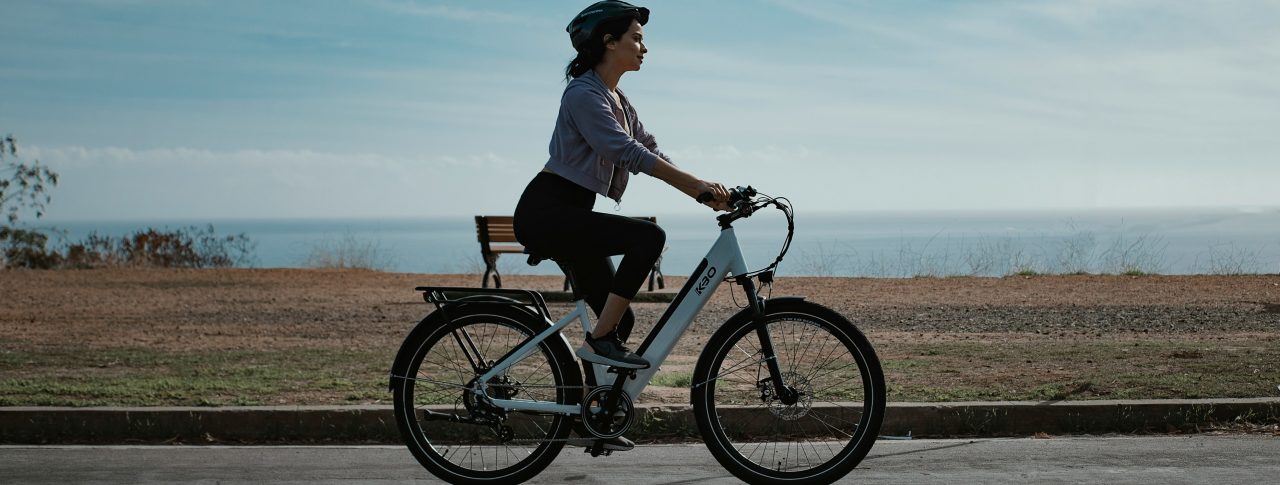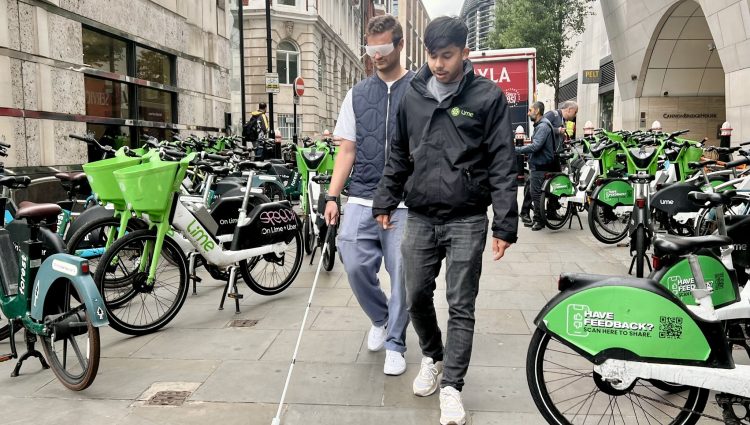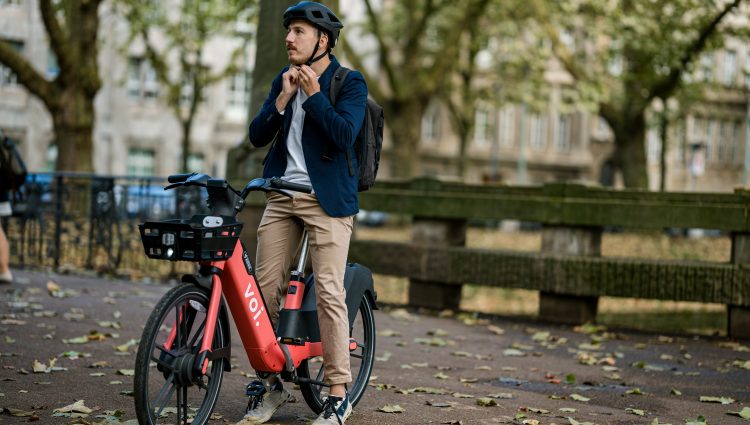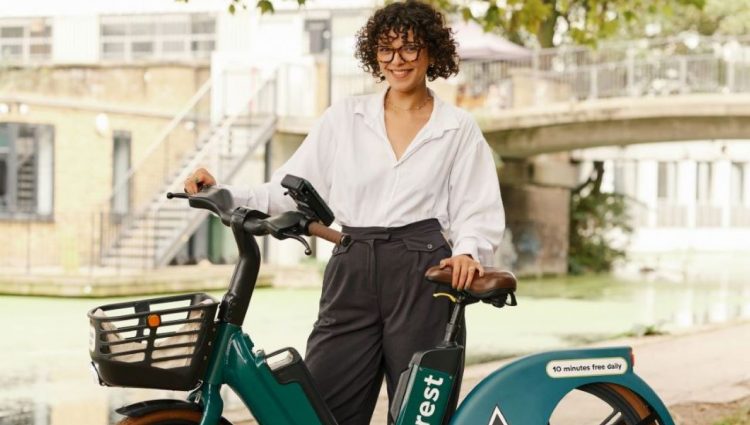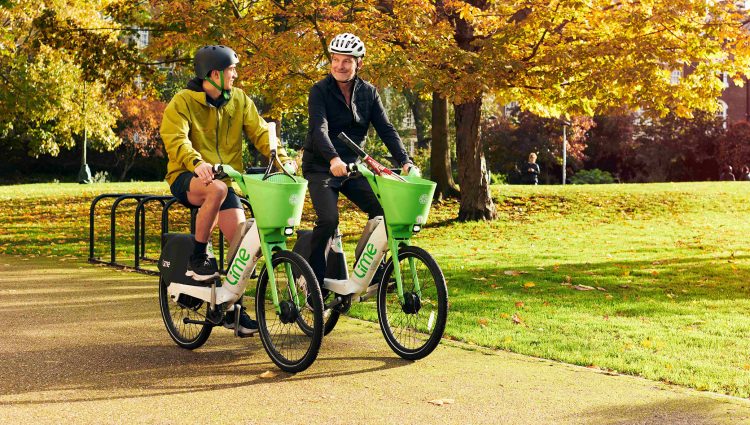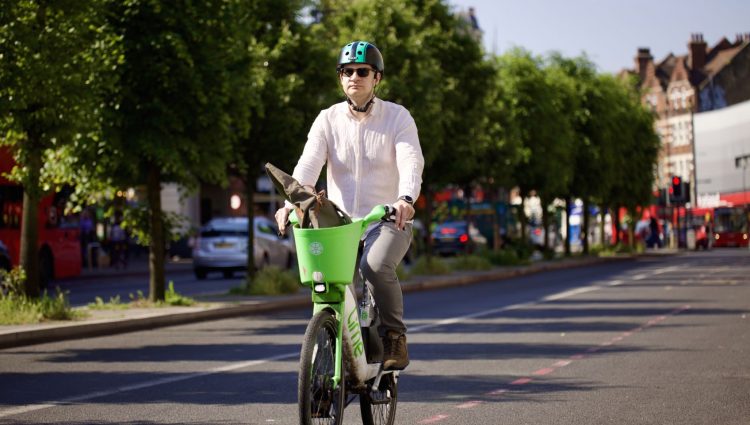E-bike charter
The growth of electric bikes (e-bike) usage with a lack of regulation and consistency remains a major concern to Sight Loss Councils (SLCs) and Thomas Pocklington Trust. E-bikes can cause street safety concerns for blind and partially sighted (BPS) people. For example, abandoned or poorly parked bikes can create a trip hazard, leading to injury or damage to mobility aids.
To tackle this, we have been working with operators, local councils and governing bodies to advocate for the safe use of e-bikes. Our aim is to ensure that BPS people can navigate our streets safely and independently alongside e-bike users. Examples include campaigns with operators Lime and TIER to promote the importance of parking etiquette and the impact of poor parking. London SLC produced in-app messaging in partnership with Lime for all of Lime’s registered users.
London SLC also developed an e-bike charter, which is currently being piloted. This calls for organisations to commit to six key principles to ensure the safety of BPS pedestrians. E-bike operator Lime was the first organisation to sign up to this charter in August 2024 and we are in conversations with many more.
Below are the organisations who have now signed up to the SLC e-bike charter we are currently piloting in London:

E-bike charter
Our ‘E-bike Charter: six to fix’ includes the following key principles for operators, local authorities and governing bodies:
- Provide parking bays and racks where users should park e-bikes. These should usually be on the carriageway to avoid obstructing pedestrians. By exception, parking may be on the pavement but must be safe and segregated. Where parking is not provided nearby, users should park e-bikes safely and securely.
- Put in place a Reporting and Monitoring framework of e-bike providers’ performance and make non-commercially sensitive results publicly available. This should include robust targets for speedy retrieval of abandoned or poorly parked e-bikes, or those not parked in designated bays.
- Provide one universally accessible way BPS people and other digitally excluded residents can report e-bike incidents.
- Commit to ensuring reasonable maximum weight and speed restrictions of rental e-bikes. Work towards implementing common restrictions as quickly as possible.
- Work towards ensuring all rental e-bikes are fitted with some form of audible alert equipment. For example, a horn or bell that can be operated by riders to warn pedestrians.
- Work together to minimise incidents of rental e-bikes used in pavement riding, including through trialling available technology and advocating for robust police enforcement.
The development of this e-charter was led by London Sight Loss Councils. Haren Thillainathan, South West London SLC member, said about this work:
“It is imperative that the rapid roll out of e-bikes does not increase risk on our streets, and I believe the adoption of the Sight Loss Council e-bike charter will prevent this. It is essential that blind and partially sighted people can walk on safe and accessible streets. Not being able to travel independently and with confidence affects blind and partially sighted people’s ability to participate in work and leisure. It also has a disproportionate impact on people’s welfare.
As well as being in conversations with multiple organisations to adopt our Charter, Sight Loss Councils remain committed to working together to address safety concerns. Our aim is to ensure that the streets are safe for all, and that blind and partially sighted people can travel with confidence.
Stay in the know
Want to get involved in our national campaigns? Stay up to date with news from Sight Loss Councils and Thomas Pocklington Trust by signing up to our mailing list

